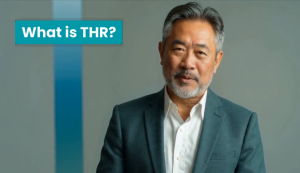Tobacco Harm Reduction: Saving Lives Through Informed Choice

Reducing the global burden of smoking-related disease requires more than bans and restrictions. It demands empowering adults with accurate information and meaningful access to safer alternatives. Tobacco harm reduction is rooted in the principle of informed choice and without transparency, accessibility, and education, millions will continue to face preventable harm from combustible and deadly oral tobacco products.
We have seen it time and again in countries where they have taken a punitive stance against safer products – the end result is thriving illicit markets where there are no controls that cause much more harm in terms of public health, community safety and the protection of young people. Countries that deny harm reduction, such as India, Thailand, Taiwan, China and Singapore come to mind.
Scientific consensus confirms that products such as e-cigarettes, nicotine pouches, and heated tobacco are significantly less harmful than smoking. Yet, widespread misinformation and overly restrictive regulations limit access to these alternatives.
Many adults remain unaware of the relative risks of different nicotine products, while others cannot switch due to bans, cost barriers, or lack of availability.
This problem is especially acute in low- and middle-income countries, where resources for cessation support are limited. In such regions, prohibiting reduced-risk products protects cigarette sales rather than public health, while denying adults the right to tools that could help them live healthier lives.
Countries like the United Kingdom and New Zealand show what is possible when science leads policy. By aligning regulation with evidence and supporting public education, they have achieved historic declines in smoking rates. Their success demonstrates that pragmatic, risk-proportionate approaches can save millions of lives.
To build on this progress, governments, regulators, and public health agencies must move away from prohibitionist policies. Instead, they should ensure adults can legally access a diverse range of regulated, safer nicotine alternatives. This must be paired with investment in education campaigns that are grounded in science and with genuine consumer engagement in shaping tobacco harm reduction policy. Supporting informed choice undermines the cigarette industry. Denying it protects the status quo. The choice is clear: enabling adults to understand and access safer alternatives is not only effective policy — it is a moral imperative.








